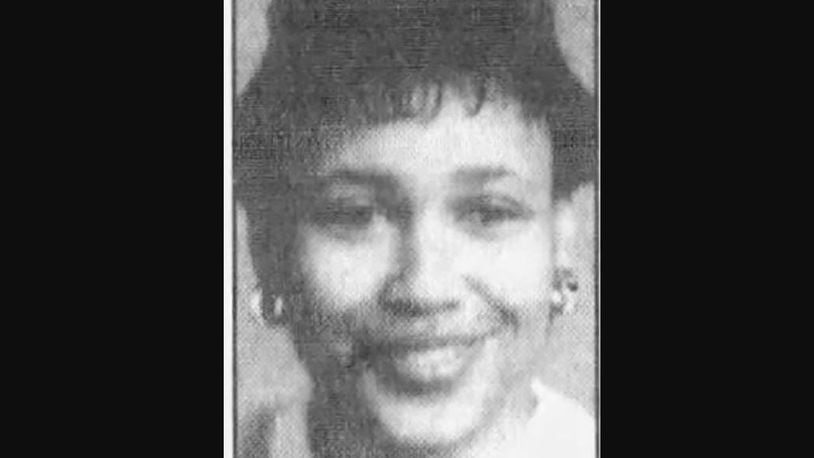“My dad had a couple of kids in Dayton,” Gladden said. “We would visit often but I never felt that close to Sharon.”
Growing up in Cincinnati, Gladden’s kindergarten teacher noticed he had a gregarious personality and recommended him for a performing art school in downtown Cincinnati, where he received much of his education as a youngster.
“I remember being 13 and visiting my sister and her sisters,” Gladden said. “They all had a little bit of an attitude. Sharon was interested in my performing arts background, and we talked about all kinds of things. It was pretty normal.”
Just a few years later, Sharon was hit by the bullet in the back of her head and killed immediately. After that, everything changed for Gladden and his family.
“Sharon’s legacy started to really come out and it was surprising,” Gladden said. “At her funeral, someone read a poem she had written and since I had done a lot of creative writing, I really paid attention to it.”
That poem, called “Don’t Miss Me,” was written by a young woman who would, at the time, have no idea what would happen to her, but expressed some deep feelings about life and living.
“It was all about maximizing what you have now,” Gladden said. “I guess I get that from people who are dying or older, but she was putting it out there at a young age. It was profound”
Gladden’s father was originally from Alabama and even at the age of 13, he viewed most of that side of his family as “simple, country people.”
“Sharon had her own complexity of thought,” Gladden said. “There she was downtown interacting with some of her friends, just as she normally would, and she was in the wrong place at the wrong time.”
Today, all these decades later, Gladden thinks about his big sister and the short but impactful life she lived. And of the increased gun violence happening across the country today. Gladden said that moment of her death was like his own initiation into adulthood at the age of 13.
“I guess this incident grounded me in ways my art school education didn’t,” Gladden said. “I started to really confront elements of my identity and what that would mean to my life going forward.”
Gladden’s training in acting, creative writing, dance and vocal music prepared him for a future in the arts world. He was accepted into the University of Cincinnati’s College Conservatory of Music’s Dramatic Performance Program and a conference and performance program at the Julliard School in New York City. His education readied him for acting in movies and on stage but eventually he decided he wanted to teach. He received his doctorate in education from Northern Kentucky University.
“I’ve been teaching now for more than 10 years,” Gladden said. “I teach composition, creative writing and literature at Cincinnati State University.”
And all his life experiences, including that most pivotal loss of his older sister, prepared him for everything he does today, including motivational speaking, acting, teaching and now writing his first book.
“I work with at-risk teens and young adults to improve educational and equity outcomes,” Gladden said.
With the increase in gun violence today, Gladden focuses on inclusiveness with topics that range from anti-racist school cultures to gender inclusion and equity to trauma and learning to overcome it. He describes his still untitled book as “creative non-fiction,” with the story of his sister’s senseless death woven throughout.
“Sharon was a young woman in the spring of her life,” Gladden said. “But if you read her poetry, it came across like she was in the fall or winter of her life.”
Gladden tells Sharon’s story in his book and how what happened marked the death of his own childhood and started him on the path to adult life almost immediately. He is also writing about taking stock of his life as a black man struggling with his own identity.
“My hope is that we can all work together on a culture shift and move away from violence,” Gladden said. “We all need to confront whatever is troubling us and turning us to violence. We just need to be better to one another.”
For more information, log on to ronniegladden.com
About the Author
